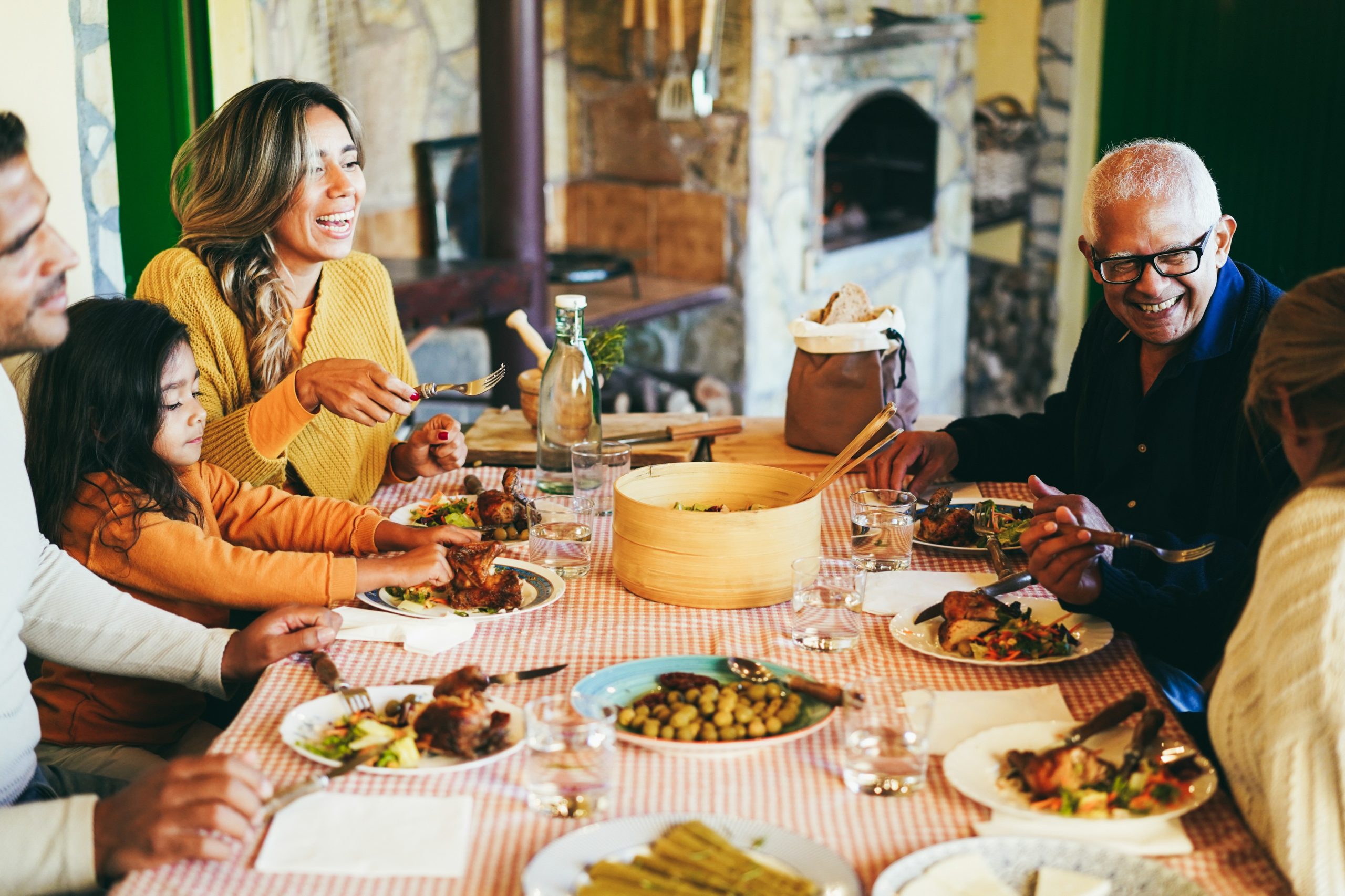This Recipe for Trust Could Change Nutrition Research
[post_date]

Ana Paola Campos, PhD, previously worked as a postdoctoral research associate in the Goode Lab.
Julian Robles is a research assistant in the Goode Lab, where he engages in qualitative research around eating disorders. He graduated from UNC Chapel Hill with B.S. in biology.
Goode’s Living F.R.E.E. Lab works to develop, implement, and evaluate equitable and community-engaged interventions to treat obesity and eating disorders.
Culturally attuned nutrition research is essential to improving health for all communities. Food choices, eating patterns, and family routines are deeply shaped by culture, and effective nutrition science must recognize and respect that diversity. When researchers move beyond a one-size-fits-all approach and engage families as true partners, they can design interventions that reflect real experiences and lead to meaningful, lasting change. At the UNC Nutrition Research Institute, this commitment to culturally responsive research is taking shape through studies with Hispanic families, work that not only deepens understanding of how parents influence children’s eating and activity habits but also builds the trust needed to create healthier futures for every community.
In a Goode Lab publication, Factors Influencing Health-Related Practices Among Hispanic Parents, NRI researchers led by Ana Paola Campos, PhD, explored how Hispanic parents make decisions about food and health within their families. The study revealed that while parents are highly motivated to promote healthy eating, they face barriers that extend beyond nutrition knowledge. Parents described preparing traditional dishes—such as pozole, Carapulcra, and rice with beans—as a way to preserve cultural identity while also striving to make meals more nutritious by using less oil, adding more vegetables, or serving smaller portions. These findings highlight that culture is not an obstacle to healthy eating but a valuable foundation for designing effective nutrition interventions.
“Nutrition research is most powerful when it begins with listening,” said Campos, a postdoctoral research associate in the Goode Lab. “Families already hold deep knowledge about food and health. Our job as researchers is to understand those perspectives and use them to design interventions that make sense in their everyday lives.”
The study also uncovered a critical gap in perception: more than half of the children were classified as being overweight or having obesity, yet many parents did not view their child’s weight as a concern. This insight underscores the importance of addressing health beliefs and communication styles within a cultural context. Simply providing nutrition guidelines is not enough, interventions must also engage families in ways that honor their values and traditions while gently reshaping perceptions of health, body weight, and well-being.
A companion article, Pozole, Patasca, and More: Lessons in Representation, Trust, and Diversity from Hispanic Research Recruitment, led by Julian Robles, research technician in the Goode Lab, describes how the researchers built the trust necessary to carry out this formative work. Many Hispanic families are hesitant to participate in research due to language barriers, time constraints, or mistrust of institutions. By partnering with El Puente Hispano, a local nonprofit that supports Hispanic families in North Carolina, the NRI team was able to recruit participants and create a space where parents felt seen and respected. Simple but meaningful choices—conducting interviews in Spanish, meeting participants at familiar community locations, and listening first—made the difference between distant observation and genuine collaboration.
“Building trust takes time and presence,” said Julian Robles, first author of the recruitment study. “When families see that researchers care about their stories, not just their data, they open up in ways that make the science stronger and more reflective of real life that will ultimately address the exact needs of those families.”
Share on Socials
Inspired
By What You Read?
NRI scientists are discovering how genes, environment, and microbiome affect our individual requirements for nutrients so that, soon, medical practitioners will be able to guide people in their health from childhood through old age without adding to these tragic numbers. Our critical research depends on the generosity of people like you.
